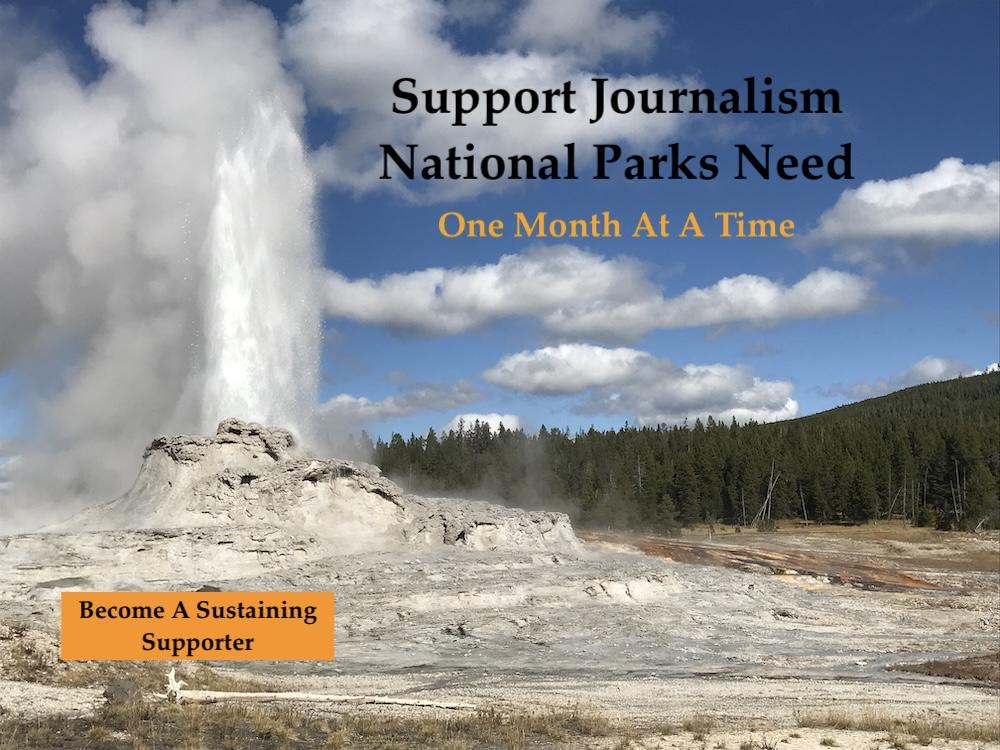
Concerned that the National Park Service is not taking adequate steps to root out sexual harassment and misconduct in the Service, members of Congress have asked National Park Service Director Jon Jarvis to provide three reports from more than a decade ago that looked into the problems so they can "understand NPS's response to sexual harassment and misconduct."
The request (attached below), signed by Republican House members Jason Chaffetz of Utah, chair of the House Committee on Oversight and Government Reform, and Cynthia Lummis of Wyoming, and Democratic House members Elijah E. Cummings of Maryland and Brenda L. Lawrence of Michigan, comes less than a month before the National Park Service celebrates its 100th birthday.
The specter of how widespread sexual harassment and misconduct might be across the ranks of the National Park Service, which counts roughly 20,000 employees, has lingered all year in the background of the buildup to the centennial celebration. It first arose in January with the release of a report from the Interior Department's Office of Inspecter General that described a 15-year chapter of sordid behavior among the staff of Grand Canyon National Park's River District Office.
The investigation generated a tawdry list of inappropriate behavior, from male employees taking photographs up under a female co-worker's dress and groping female workers to women dancing provocatively and bringing a drinking straw "shaped like a penis and testicles" to river parties. The incidents, a September 2014 letter to Interior Secretary Sally Jewell charged, "demonstrated evidence of 'discrimination, retaliation, and a sexually hostile work environment.'”
The agency's most recent struggles with misconduct and sexual harassment date to the 1990s, when the Park Service reached an Equal Employment Opportunity settlement "that stemmed from complaints of harassment and gender bias in promotions at Grand Canyon National Park," the letter to Director Jarvis noted. "The task force found NPS was unable to retain women in law enforcement positions due to gender bias, sexual harassment and hostile work environments. Over half of the female park rangers who responded to the survey experienced sexual harassment on the job, and eighty percent knew someone who experienced harassment but did not report it for fear of retaliation.
"The Park Service has been aware of problems with sexual harassment since 2000, but is responding to these more recent incidents with yet another survey," the letter said. "This response is especially disappointing in light of the fact that some of the same officials handling the Park Service's response to these cases were involved in 2000."
More recently, OIG investigators in June reported that they had "found that a law enforcement supervisor at Canaveral National Seashore made an unwanted sexual advance toward his subordinate, a law enforcement employee, in December 2015. In addition, we found a pattern of harassment involving this supervisor and two other (Seashore) employees."
Our investigation revealed that over the past 5 years, the law enforcement supervisor has shown a pattern of sexual harassment involving the law enforcement employee and two other female employees at CANA. We found that on December 4, 2015, he took the law enforcement employee to the home of a park volunteer and made an unwanted sexual advance toward her in the volunteer’s bedroom. We also found that he sexually harassed another employee in 2015 by repeatedly complimenting her on her physical appearance, giving her unwanted and unsolicited tokens of affection, asking her out on dates, and attempting to engage her in conversation about sexually explicit content in movies. In 2011, he harassed the third employee by repeatedly asking her out and calling her on her personal cell phone after duty hours.
Overall, the law enforcement supervisor refused to accept full responsibility for his actions concerning any of the three women. He also provided vague and contradictory answers to our interview questions and demonstrated a lack of candor during multiple interviews about the incident with the law enforcement employee, and denied ever sexually harassing the other two CANA employees.
In their letter to Director Jarvis, sent this past Thursday, the congressmen and women noted that the problem of sexual misconduct and harassment has plagued the agency even though top leadership long has known of it. For example, they pointed to Sue Masica, director of the Park Service's Intermountain Region, the largest in the system. They noted that she was a member of the Park Service's Leadership Council that in November 2000 received the Women In Law Enforcement Task Force report that examined the earlier problem of sexual harassment at Grand Canyon.
"The fact that the Park Service's cultural problems have persisted for at least sixteen years shows the Park Service's response to the (WLET) task force's findings was ineffective, and fresh ideas are necessary," the letter stated.
"The final WLET report recommended that NPS institute a training program and a hotline for reporting grievances to the EEO office, among other recommendations that were to be completed by October 2005," the letter went on. "The Park Service never implemented any of these recommendations. It should come as no surprise that NPS is still plagued by the same serious issues."
According to the congressmen and women, "(T)o date, however, conversations with the OIG have revealed no final agency action had been taken against any senior-level personnel as a result of the OIG's findings" in either the Grand Canyon or Canaveral cases.

The three requested documents.
Former Grand Canyon Superintendent Dave Uberuaga did retire this past June 1, rather than take a transfer to the Park Service's headquarters in Washington, D.C. Interior Secretary Sally Jewell and Director Jarvis in mid-July announced that Christine Lehnertz, superintendent of Golden Gate National Recreation Area in California, would take the helm at Grand Canyon.




 Support Essential Coverage of Essential Places
Support Essential Coverage of Essential Places






